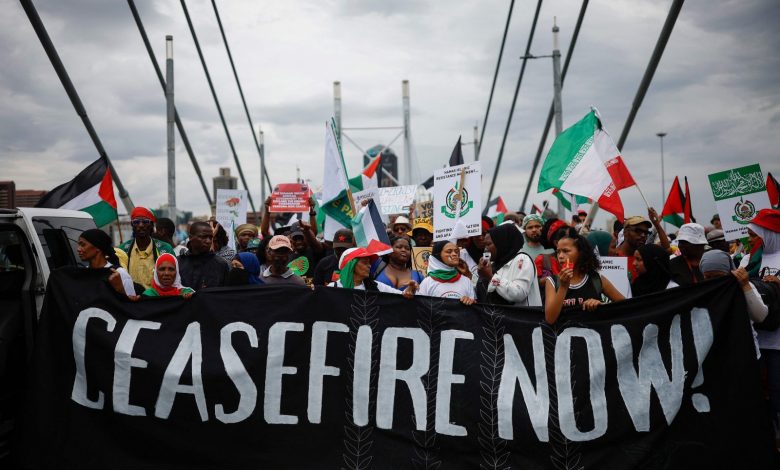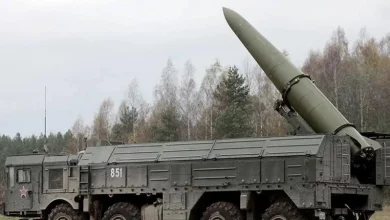Analysis: Where do African nations stand in the Israeli-Palestinian case?

The recent clashes between Palestine and Israel, marked by the attacks of Oct. 7 and the responses that followed, have highlighted the mixed position of sub-Saharan Africa in the Israeli-Palestinian conflict. Between the absence of support for Israel, despite attempts to normalize its relations and a historical Palestinian tropism, how can we explain the reserved positions observed in recent weeks?
After the chill that led to the breakdown in diplomatic relations between the countries of the Organisation of African Unity (OAU) and Israel following the 1973 Yom Kippur War, and after several attempts to restore those relations, Israeli Premier Benjamin Netanyahu has initiated a conciliation with several African states, seeking to revitalize the doctrine of the periphery. Despite all this, Israel’s concrete investment in the continent remains limited. Although it is possible to talk about normalization, albeit modestly, the real scope of this normalization remains to be assessed, underlining the complexity of the Israeli-African dynamic; the reason lying in the gap between slogans and concrete applications, thanks to which Africa has remained very secondary for Israeli diplomacy.
The limits of Netanyahu’s African policy became apparent within the African Union (AU) when, in July 2021, Israel was granted observer status thanks to the support of Ghana, whereas Palestine had become an observer member in 2012. These moves sparked strong protests, particularly from two of the continent’s important countries, South Africa and Algeria. These controversies led to a delay in Israel’s final accreditation, to the extent that in February, an Israeli diplomat was expelled from the room where the AU summit was being held and her observer status was suspended.
It should also be pointed out that Azali Assoumani, the president of Comoros and the current chairperson of the AU, is vehemently opposed to the recognition of the State of Israel – and therefore to its entry as an observer.
In August, at the inauguration of a mosque in Anjouan (Iceland in Comoro), he even formulated criticism regarding Israel.
Similarly, a look at the votes at the United Nations gives a clear idea of African countries’ positions on this matter. In 2017, most African countries had voted against the United States’ decision to open an embassy in Jerusalem, during an emergency U.N. meeting. A year later, when the U.S. called for condemnation of Hamas following rocket attacks from the Gaza Strip, only seven out of the 54 states voted in favor of the resolution.
However, in 2012, it was the vote on resolution 67/19 granting Palestine non-member observer status at the U.N. that revealed how little support Africans have for Israel. 47 African states voted in favor of adopting the resolution, while none voted against and only four countries abstained.
The same was true of the Gaza war in 2009. More than 1,400 Palestinians died as a result of violence committed by Israeli forces. Yet at the U.N., most African states voted in favor of the creation of a commission of investigation headed by a South African judge, while no state voted against the inquiry (eight abstained, and eight absent). It should be noted that the reactions of African countries to the Oct. 7 attack on Israel vary according to their history, bilateral relations and domestic concerns. They essentially oscillate between three types of reaction: silence (this is the only place in the world where many countries have not expressed themselves publicly on the issue); the call for de-escalation, which may tend toward condemnation of Israel, and, thirdly, condemnation of Hamas.
Current diplomatic ties haven’t resulted in support for Israel
Generally speaking, the sub-Saharan African states that have expressed their position have mainly followed the AU’s declarations, which refuse to describe Hamas’ action as a threat and promote the two-state solution as a way out. This lukewarm response reflects the complex relationship between Israel and the African continent. While many heads of state have established diplomatic and economic relations with Israel, political support is difficult to show publicly, especially as electoral gains are limited. For many countries, there was nothing to be gained by speaking out, especially as their public opinion, often very young, has little knowledge of the Israeli-Palestinian conflict.
What’s more, many countries are under threat from a variety of sources, and it seems wiser to keep one’s distance from the Israeli-Palestinian case.
Not many countries have chosen to express clear support for Israel. For the most part, they are Israel’s historic partners: Kenya, the Democratic Republic of Congo (Zaire was one of the first states to re-establish links with Israel in 1982 and current President Felix Tshisekedi has announced the opening of an embassy in Tel Aviv with an economic section in Jerusalem in 2020), Togo (Israel’s second-largest trading partner on the continent), Rwanda, Uganda and Cameroon. As for Kenya, it is an interesting case in point.
Long regarded as a trusted ally of Israel, it initially condemned the Hamas attack before seeking a delicate balance between condemnation and a call for de-escalation and the implementation of a two-state solution.
Most of Israel’s supporters have sought to balance their statements with a call for de-escalation or negotiation. More often than not, this statement is inseparable from the concerns and fragilities of each regime: Cameroon, Israel’s historically, has given it cautious support at a time when West Africa has been destabilized by coups d’état. From this, we can rightly conclude that there are few political gains to be made from standing shoulder-to-shoulder with Israel.
Neutral but standing with Palestine
At the other end of the spectrum, and if we exclude the countries that do not recognize the existence of Israel as a state (Djibouti, Comoros, Somalia, Mali and Niger), the most severe country is South Africa. Already opposed to Israel’s observer status within the AU, South Africa has strongly criticized Israel’s policy. A few days after the Hamas attack, South African President Cyril Ramaphosa, in a carefully considered statement, explained Hamas’ actions in terms of the Israeli occupation of Palestinian land, underlining his deep commitment to this debate. The reference to apartheid remains alive and well on the continent, with Mauritania also using it to criticize Israel in the wake of the attack.
In sum, sub-Saharan Africa has already been plagued by deep conflict and instability for several months, and a new conflict in the Middle East will only exacerbate the situation. In this context, the ridge line that many African states seem to hold, and the stability of the African Union’s position seem more prudent. In light of the above, it is fair to affirm that the continent is traditionally favorable to Palestine even if Israel has made new allies through its security and economic cooperation.





